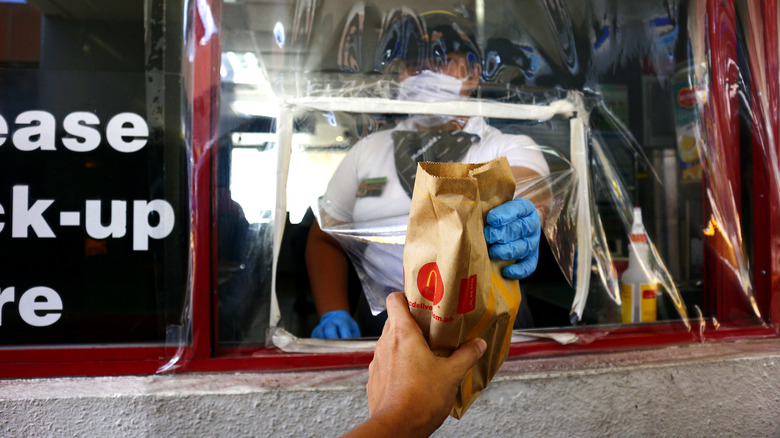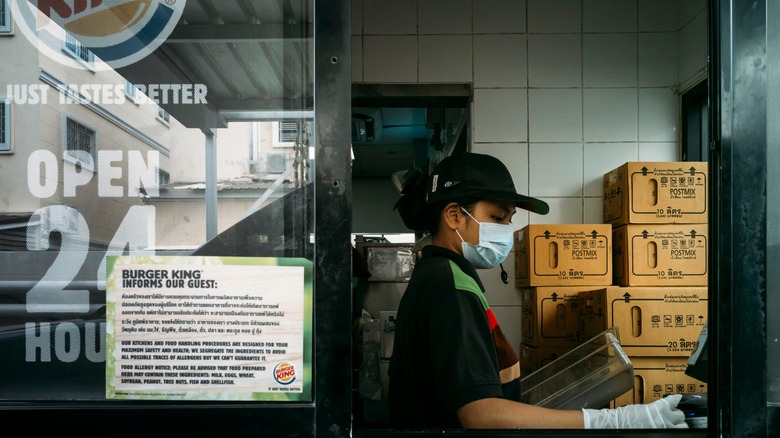New Research Reveals The Ugly Truth For Fast Food Workers During The Pandemic
When the pandemic hit, many restaurants closed or shifted to curbside delivery, while plenty of consumers started visiting fast food drive-thrus considerably more. According to Business Insider, Taco Bell saw a whopping 30 million additional drive-thru customers in a single quarter than the chain did at the same time in 2019. But such a massive influx did not happen without major changes and challenges for those working behind the window. To quantify just how badly the pandemic affected fast food workers, UCLA Labor Center conducted an online survey.
More than 400 employees responded to the survey from a total of 118 fast food companies. Though the survey was focused on those in Los Angeles County, it is the most populous county in the United States (via LA County) making it an apt depiction of what has sadly happened to those working on the frontline of fast food across the nation. And the reality is more shocking than you might have guessed.
These were the conclusions of the study
According to the UCLA Labor Center survey, 23% of fast food employees have contracted COVID-19. Those affected are disproportionately people of color and women. As Business Insider explains, two-thirds of that percentage are women and as many as nine in 10 are people of color, based on census data. By non-profit The Brookings Institute's estimate, as many as half of low-wage workers (including but not limited to fast food employees) are the breadwinners in their homes — which means it is considerably more difficult for them to take time off to quarantine. The UCLA study found the majority of respondents did not believe they would be paid for any sick time, regardless of local laws.
Legal and policy research manager at the UCLA Labor Center, Tia Koonse, told Business Insider, "fast food workers were really on the front lines during the pandemic and that means, just like soldiers, they're going to die more."
Worse still, the survey showed that many fast food employees were not paid full wages for working overtime. They were also working in conditions that were not well suited to prevent the spread of COVID-19. In response, UCLA Labor Center is calling on employers to provide better working conditions in the fast food industry. Clearly there is still much that needs to be improved — for the remainder of the pandemic and beyond.

